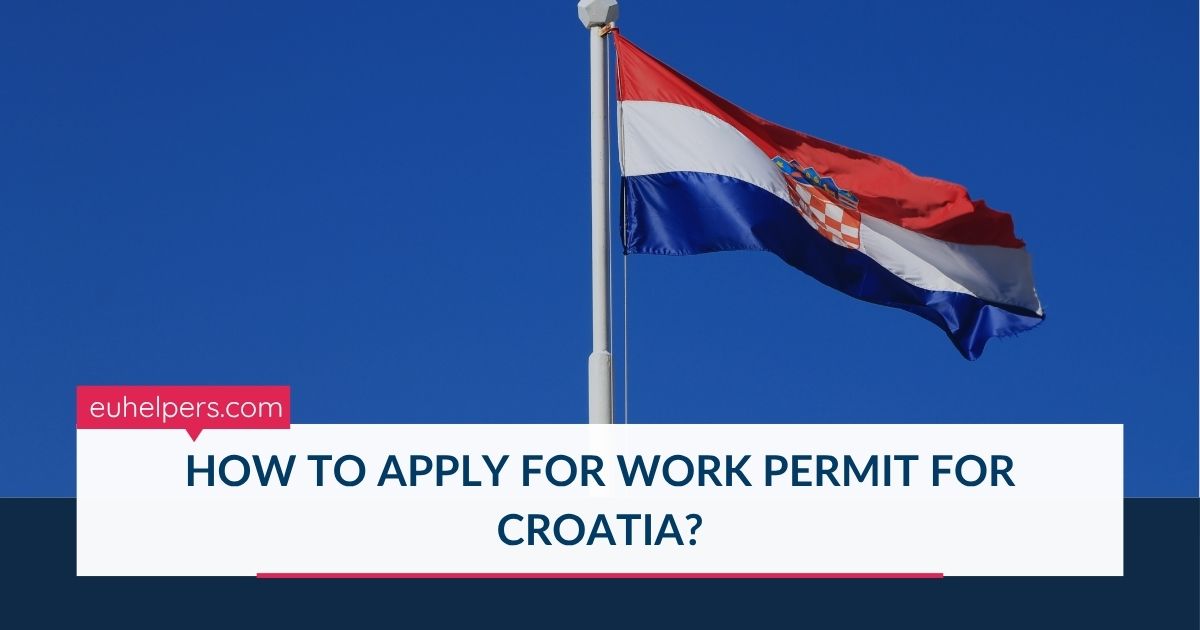As Croatia continues to grow as an attractive destination for international professionals and digital nomads, understanding how to legally work in the country is essential. Whether you're considering a job in tourism, tech, construction, or any other sector, obtaining a work and residence permit is the primary requirement for non-EU/EEA citizens. Here’s a step-by-step guide to help you navigate the process of applying for a Croatian work permit in 2025.
Who Needs a Work Permit?
-
Non-EU/EEA nationals are required to obtain a work and residence permit before working in Croatia.
-
EU/EEA nationals do not need a work permit but must register their stay with the local authorities if working for more than 90 days.
Types of Work Permits in Croatia
The most common type for foreign workers is the Single Permit (Jedinstvena Dozvola), which covers both residency and work authorization. It is typically issued for a specific job with a specific employer.
Step-by-Step Guide to Applying for a Work Permit in Croatia
1. Job Offer and Employer Application
Before anything else, you must secure a job offer from a Croatian employer. Once hired:
-
The employer applies for a Single Work and Residence Permit on your behalf.
-
Applications are submitted either online or at the police department (MUP) nearest to the employer’s location.
Note: Some employers may be required to perform a labor market test unless the occupation is on Croatia’s shortage occupation list.
2. Required Documents
The application must include the following:
-
Valid passport and a copy of the identification page.
-
Employment contract or official job offer.
-
Proof of educational qualifications and relevant work experience.
-
Proof of accommodation in Croatia.
-
Recent passport-sized photographs.
-
Health insurance coverage (until you’re enrolled in Croatia's public system).
-
Proof of a clean criminal record from your home country (in some cases).
3. Application Review and Approval
-
The Croatian Ministry of the Interior reviews the application in collaboration with the Croatian Employment Service (HZZ).
-
Processing time generally takes 30–60 days, but this may vary depending on the location and occupation.
4. Visa and Entry (If Required)
-
If you are applying from a country whose citizens need a visa to enter Croatia, you must first obtain a national visa (D visa) at the Croatian consulate or embassy in your home country.
-
If you can enter Croatia without a visa, you may be able to apply for the work permit after arrival.
5. Residence Card Issuance
Once approved:
-
You will receive a biometric residence card that confirms your legal right to work and stay in Croatia.
-
You must register your address with the local police within 3 days of arrival or of receiving the permit.
Validity and Renewal
-
Work permits are usually issued for up to one year, with the possibility of renewal.
-
If you change jobs, a new permit must be requested.
Final Tips
-
Work permits are job-specific and tied to a specific employer, meaning you cannot freely switch jobs without going through the application process again.
-
It is strongly recommended to work with a Croatian employer experienced with international hiring, as they will handle most of the application process.
-
Make sure to check updated requirements with the Ministry of the Interior or Croatian consulate, as regulations may change.
Croatia’s simplified work permit system makes it relatively straightforward for qualified non-EU professionals to live and work in this beautiful and dynamic country. By following the proper steps—securing a job, gathering documentation, and cooperating with your employer—you can start your Croatian work journey legally and with confidence.

